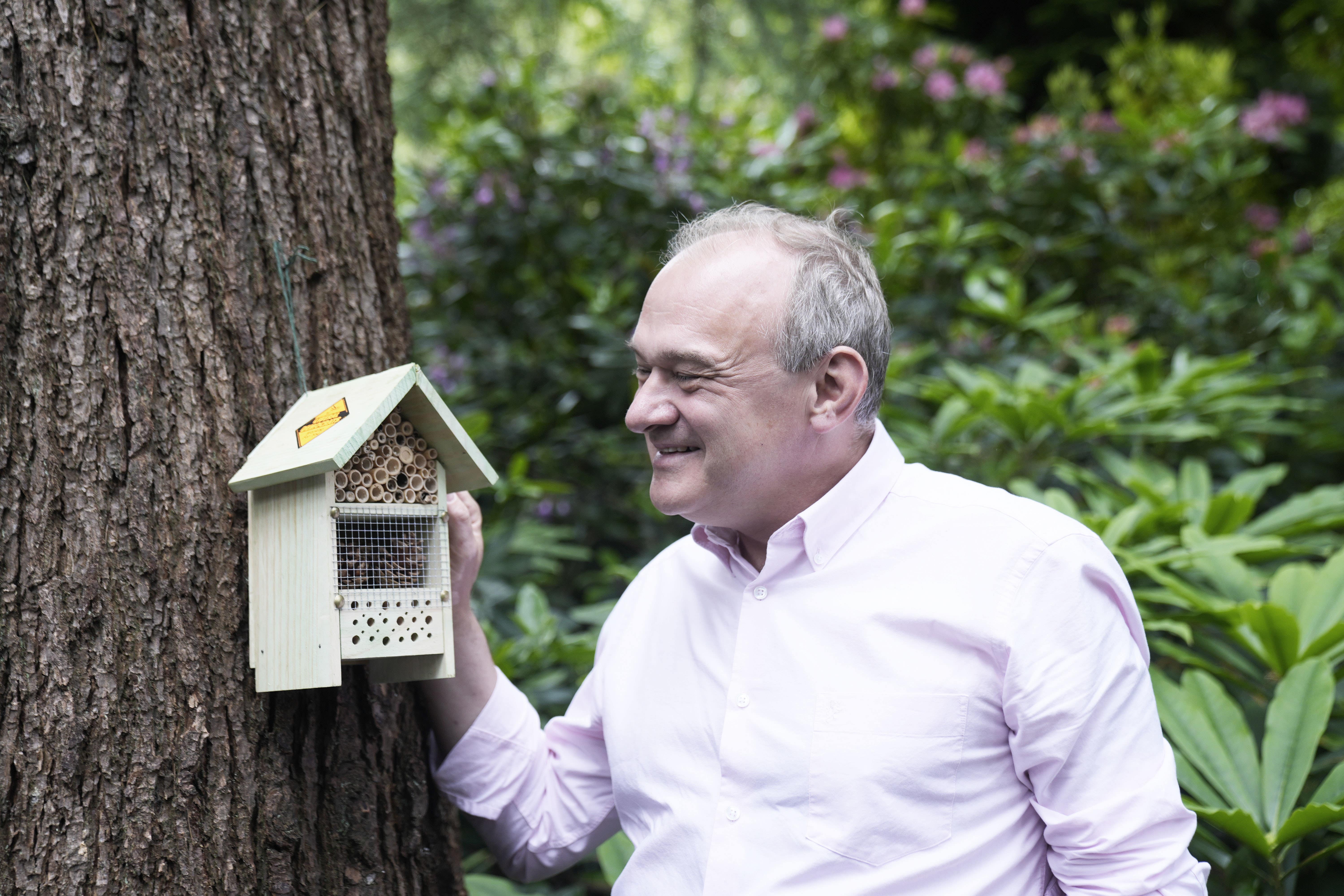Seats visited by party leaders on day 29: Key election data
Sir Ed Davey has visited 32 seats since the start of the campaign, 28 of which are being defended by the Tories.

Your support helps us to tell the story
From reproductive rights to climate change to Big Tech, The Independent is on the ground when the story is developing. Whether it's investigating the financials of Elon Musk's pro-Trump PAC or producing our latest documentary, 'The A Word', which shines a light on the American women fighting for reproductive rights, we know how important it is to parse out the facts from the messaging.
At such a critical moment in US history, we need reporters on the ground. Your donation allows us to keep sending journalists to speak to both sides of the story.
The Independent is trusted by Americans across the entire political spectrum. And unlike many other quality news outlets, we choose not to lock Americans out of our reporting and analysis with paywalls. We believe quality journalism should be available to everyone, paid for by those who can afford it.
Your support makes all the difference.The Labour and Lib Dem leaders both visited seats in Yorkshire on Thursday, ahead of their appearance in the evening on BBC1’s Question Time in York, while Prime Minister Rishi Sunak chose to stay off the campaign trail.
Sir Ed Davey went to what is plausibly the only constituency in the country the Liberal Democrats might gain from Labour on polling day: Sheffield Hallam.
It is a seat with a notable Lib Dem history, having been held by the party’s former leader, Sir Nick Clegg, from 2005 up to 2017, when he was beaten by Labour.
The 2019 general election saw a three-way tussle for Sheffield Hallam between Labour, the Lib Dems and the Conservatives, with Labour scoring a narrow win and the Lib Dems finishing close behind in second place.
At this election, the constituency is ranked fourth on the Lib Dems’ national target list, with Labour defending a majority of just 1,108.
A direct swing in the share of the vote from Labour to the Lib Dems of just one percentage point would see the seat change hands – though the outcome could also be influenced by the sheer number of candidates that are standing, with the Conservatives, Greens, Workers Party, Rejoin EU and the SDP also on the ballot paper.
Sir Ed has visited 32 seats since the start of the campaign, 28 of which are being defended by the Conservatives.
The other four are the safe Labour seat of Hackney South & Shoreditch, where he launched the Lib Dem manifesto; Sheffield Hallam, which he visited on Thursday; Cowdenbeath & Kirkcaldy in Scotland, won by the SNP in 2019 and more plausibly a Labour target at this election; and the safe Lib Dem seat of Bath.
Meanwhile, Sir Keir Starmer spent Thursday morning in York Outer: the only constituency in the country with the word “outer” in its name, and which always appears last on any alphabetical list of UK parliamentary seats.
York Outer has been in existence as a constituency since 2010 and has been won by the Conservatives at every general election up to and including 2019, with the party defending a notional majority at this election of 10,782.
It would take swing of 9.9 percentage points for the seat to change hands, ranking it at number 106 on Labour’s target list.
Sir Keir has now visited 35 seats in the course of the campaign, 26 of which are being defended by the Tories.
He has also held events in six Labour seats, two SNP seats in Scotland, and Brighton Pavilion in East Sussex which is being defended by the Greens.
Prime Minister Rishi Sunak has visited 38 constituencies since the campaign began, of which 34 are Conservative defences.
He has visited only two Labour seat so far: Blyth & Ashington, a new constituency at this election, but one which would have had a notional Labour majority in 2019 of 6,118; and Cambridge.
The other two seats in which he has held campaign events are Caithness, Sutherland & Easter Ross (won by the SNP in 2019) and Belfast East (won by the DUP).